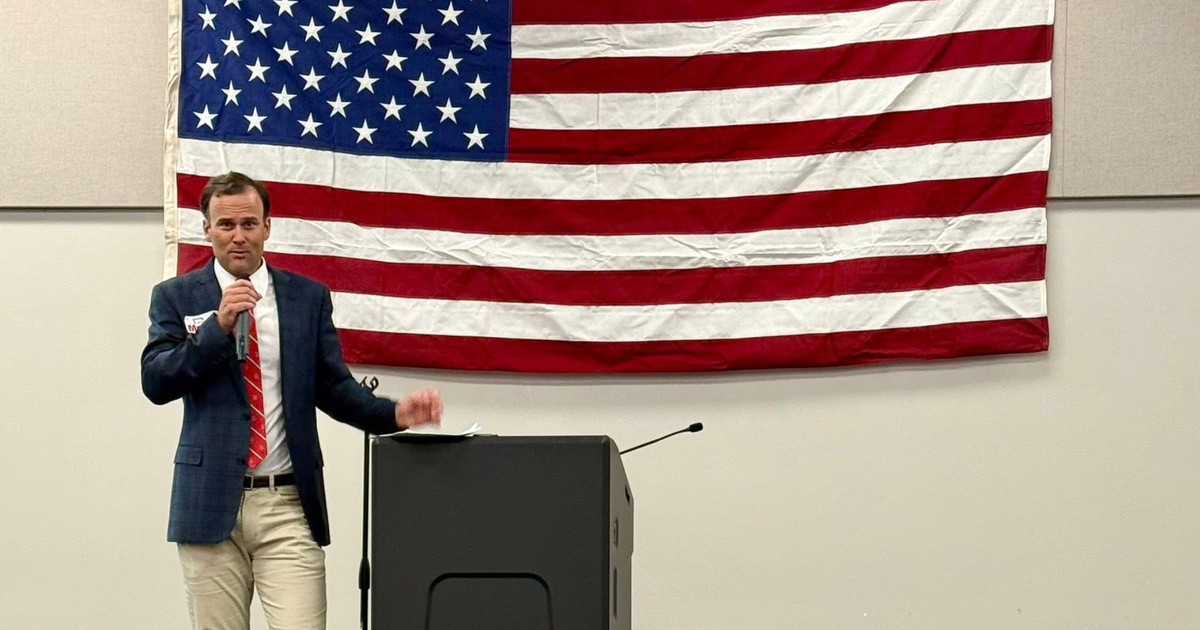Republicans unite on "election integrity" message for coming elections
Upon losing an election, political parties usually search their souls – with the help of operatives poring over polling and data – to plot their resurgence. Democrats are embarking on such a mission after losing a startling number of House seats, even though Joe Biden won the presidency and they won control of the Senate, if just barely.. But Republicans this year are forgoing the traditional election post-mortem, despite their losses, and instead are pursuing a hardliners' "election integrity" message that resonates with their base and unites factions within the party.
Although the Republican Party has otherwise been divided on its future in the post-Trump era, on the issue of election laws, the Republican National Committee, state legislatures, conservative outside groups, and federal lawmakers appear to be singing the same tune.
"Autopsies are such a beltway convention, and look where the autopsy in 2012 started and look where we ended in 2016," says Matt Gorman, a Republican strategist and veteran of presidential and congressional campaigns. Then-RNC chair Reince Priebus' post-mortem really was called an "autopsy," what he concluded was that the party should prioritize comprehensive immigration reform and make a bunch of technical changes, like shortening the primary process, limiting the number of debates and raising more money.
"Public policy is always more productive," says Gorman. "It's forward looking and can help instill confidence."
Federal election legislation that passed the House, known as HR1 and now S1 in the Senate, is spurring conservatives into action. The sweeping proposal would create automatic, online and same-day registration, expand access to early and mail voting, and reform redistricting.
"The urgency of the conservative movement to recognize the importance of safeguarding elections is more important today than ever before," says Jessica Anderson, executive director of Heritage Action, which launched a $10 million "election integrity" campaign focused on opposition to HR1 and action in state legislatures. "HR1 would be a federal takeover of state election laws. Among the base, that's what's hitting the hardest."
Anderson said that while Heritage Action has focused on election laws for years, "the difference is the grassroots, they are more energized...that's a direct result of the frustration around what happened in November."
A Quinnipiac University poll from early February found 76% of Republicans believe there was widespread fraud in the 2020 election. Mr. Trump and his allies were defeated in more than 60 court cases after the election, former Attorney General William Barr said there was no evidence of fraud at a level that "could have effected a different outcome in the election" and a group of federal, state and local officials working with the Department of Homeland Security declared the 2020 election "the most secure in American history."
House Republicans unanimously opposed the H.R 1and with little prospect for getting GOP support in the Senate, activists have tried to leverage Republican opposition to push Democrats to kill the filibuster.
The fierce opposition to H.R. 1 extends down to the GOP's base. RNC chair Ronna McDaniel constantly hears from activists who are concerned about the bill. The RNC announced a new Committee on Election Integrity in February that is "dedicated to restoring election transparency and ensuring voters have confidence in future election processes."
Republican lawmakers around the country are pushing voting restrictions in their state legislatures. More than 40 states have introduced over 250 bills that would restrict voting access in the wake of the 2020 election, according to the Brennan Center for Justice.
Lawmakers supporting the bills often use the refrain that the measures make it "easy to vote and hard to cheat." Legislative sponsors also say the bills are designed to shore up confidence in elections.
In some instances, lawmakers supporting new restrictions questioned the results of the 2020 election or suggested the measures could lead to political gain. In Iowa, where Governor Kim Reynolds signed a bill that shortens the early voting period, tightens the timeline for returning absentee ballots and requires county auditors to follow state election laws, one GOP state senator repeated the false claim that the election was stolen.
"Most of us in my caucus, the Republican caucus, believe the election was stolen," Iowa Republican State Senator Jim Carlin said during a debate over the bill that Reynolds eventually signed. "Who believes that Joe Biden got 12 million more votes than Barack Obama on his best day? I don't."
John Kavanaugh, a state representative in Arizona, one of the states the Brennan Center ranked as having the highest number of restrictive bills, told CNN that "Democrats value as many people as possible voting, and they're willing to risk fraud. Republicans are more concerned about fraud, so we don't mind putting security measures in that won't let everybody vote -- but everybody shouldn't be voting."
"Quantity is important, but we have to look at the quality of votes, as well," he added, saying some voters may be "totally uninformed."
Those sentiments echo former President Trump's baseless claims about the election and indicate his sway around the issue.
However, some of the most ardent supporters of tightening voting access do not want Mr. Trump associated with their efforts.
"I think he should sit it out," says Ken Cuccinelli, a former Trump administration official who is chairing the new "Election Transparency Initiative" at the Susan B. Anthony List. "To the extent he comments on issues of the day, it ought to be foreign affairs and taxes and the economy and immigration."
"He makes it more partisan....like the RNC getting in there, but times ten," Cuccinelli says. "The goals he would prefer to be achieved are more likely to be achieved without his participation than with it."
Cuccinelli says groups like his that are working on voting laws should focus on preventing the passage of HR1, which conservatives see as a federal takeover of election laws, and at the state level should focus on voter ID, voter rolls and ballot security.
"There are a few people who are in their own head fighting out 2020. That is not what we are doing. We are trying to stay forward looking," he said. "If we want to make our system work in a way that every American can be confident in, we are going to have to put some work into it."
Though the party is largely unified in pressing for more stringent voting laws, the schism between them could open up again about how views of the 2020 election will impact primaries during the midterm cycle. One battleground state GOP strategist told CBS News that he fears that falsely claiming the 2020 election was stolen could be a litmus test in GOP primaries.
"You don't necessarily have to lean in deep, but if you can't at least lean in a little bit, I tend to think you're 'not a conservative' by today's standard," the strategist said. "I almost feel like that's the first litmus test. I would like to be wrong on that, but we'll see."




